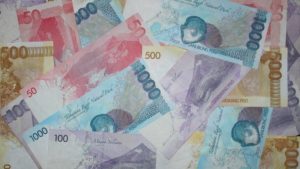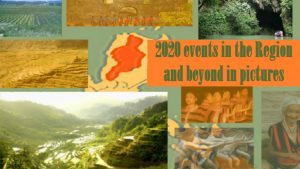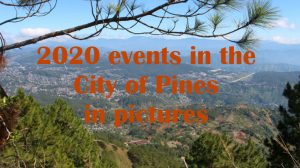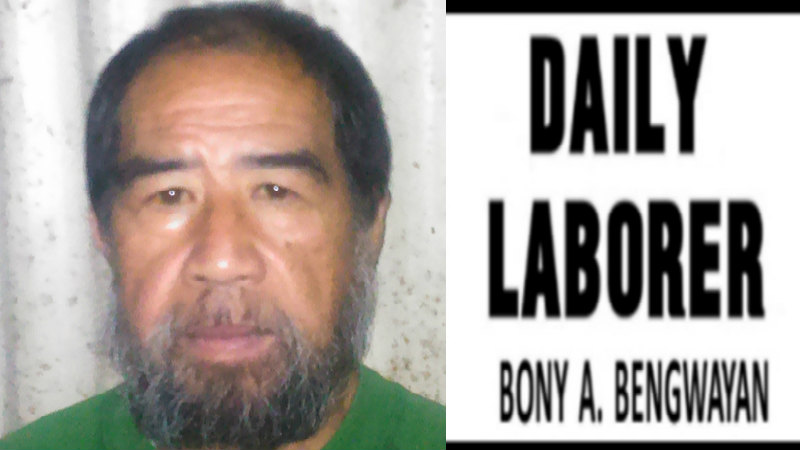Remember those times you open the kitchen window to allow more air to come in and a housefly come zooming in and landing on the kitchen table?
Then another housefly lands, too. Then another. The disease-carrying houseflies seemed to know and anticipate food was about to put on the table.
One of the housefly, near you, preened its wings defiantly, daring you to do something about their illegal entry.
In reflex, you slammed your palm on the table (ARAY!) in an effort to squelch the preening housefly, but you failed, as the housefly easily sailed off, landing on your refrigerator, waiting for the chance to go to the table again.
Why slam your palm to kill a housefly when you can instead swat it with a folded newspaper, a piece of sturdy cartoon or the common flyswatter?
It’s often called ingenious ways, “reinventing the wheel” or reverse engineering.
Filipinos are known for being resourceful, turning something valuable from recycled material or known as artisan skill, which serves as valuable contribution to holistic values of sustainable development.
Such contributions readily give positive impact to areas like environmental concerns – which is a test issue in Cordillera Administrative Region (CAR) – like reduction and recycling of waste, and use of local and natural materials in craft production.
Artisan skills, as well, contribute to the social aspect of developing and preserving ethnic knowledge while helping provide sustainable employment and self-actualization opportunities.
One often sees creative ideas spring forth from the fertile minds of rural children and adults in the provincial villages of Cordillera Administrative Region (CAR) and Region 1, spurring these innovative technologies into useful applications in the future and when developed, less money is involved in their production.
See other columns:



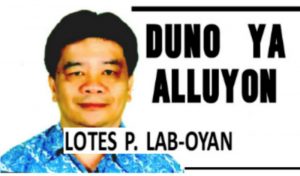

For example, how often have we seen old bicycle tires discarded and tossed into the garbage, become a hula hoop for enterprising female children.
While other “provincianos” have elevated that useless bicycle tire into revolutionary use, devising it in a way it spins a few feet above the ground and serving as potter’s wheels.
Still, there are other things deemed useless and irrelevant but put to good use by the simple ingenuity yet tinkering mind of many highlanders, Ilocanos and other Filipinos out there.
There’s no lack of ideas from practical Filipinos to improve themselves and their communities through cooperation and integration, ideas which are quite creative and warrant further consideration.
In today’s modern times, many in our society have the notion that everything is already set or simply purchasing it – just like ordering food in a fast-food outlet – and no need to trouble the mind for innovation. Well, without savants, entrepreneurs or cooks coming up with new ideas, or bettering previous processes, CAR or Region 1 we live in might well be uninspiring.
While Cordillerans, Ilocano and other Filipinos are often swamped by western cultural dynamics, there still remains the need for new forms of practice suited to our rapidly evolving economic, political and development circumstances, instead of being trapped in a “wheel of existence,” by depending wholly and largely in part, on invention from other countries.
On the edge of this Third Millennium with technologies accelerating pace of change, yet humankind, armed with these technologies, finds itself in a death combat with a snarling virus no technology has been proven to defeat it yet, and members of humankind worldwide battered by the battle and succumbing like stack of felled wood, to say the least.
As authorities ease lockdown, it’s clear they are implementing it so knowing virus is here to stay. There’s no choice across CAR and Region1, for that matter, but to prepare and reopen. What can they do to “reinvent the wheel” and stay ahead, knowing extraordinary times call for speed, nimbleness and adaptability?
Face mask, today, is the face of all people from walks of life, becoming the representation of wanting to survive. It has also become the world’s most coveted commodity.
Global scramble for this vital item has exposed the harsh realities of international politics and the limits of the free market. Countries have hoarded masks and used them as chips in political wrangling. Thieves have made off with them. Speculators sell them at high prices when authorities back are turned.
There were also many countries which bought face masks and other Personal Protective Equipment (PPE) from a big nation in Asia, only to find these faulty and not at par with quality control. They seized these and are presently demanding restitution.
Here in the Philippines, a group of government savants silently went to work, inventing, in an effort to spare the government the rude troubles experienced by other countries in the purchase of face masks and other PPE.
Government tinkers of the Department of Science and Technology – Forest Products Research and Development Institute (DOST-FPRDI), last May hit pay dirt with their invention, using a lowly plant long known as the “poor man’s timber,” of often listed as a “minor” forest product – the bamboo.
DOST-FPRDI was able to produce a bamboo-framed face shield for the Philippine front line service.
DOST-FPRDE director Romulo T. Aggangan said, “Out team had to improvise with the materials at hand because the enhance community quarantine made it challenging to procure supplies.”
In short, DOST-FPRDI was able to solve the PPE material supply shortage, not by depending on expensive material base but utilizing an inexpensive and abundant stuff.
Presently, more than 2,000 bamboo-framed face shields were turned over by DOST-FPRDI to authorities in different parts of the country. And production is ongoing.
Grecelda A. Eusebio, chief of the Technology Licensing and Promotion Section of DOST-FPRDI said that anyone interested in adopting the bamboo-framed face mask technology can contact them at fprdi@dost.gov.ph or tel. no. (049) 536-2377.
DOST-FPRDI will teach those interested in mass-producing the bamboo-framed face masks on the design, specifications, steam bending the bamboo into the desired form and coming out with production at par with quality control.
DOST had also developed a re-usable, washable and re-wearable face masks and, in partnership with the private sector, will produce 500,000 first batch production that can be used up to 50 times.
DOST is encouraging Filipinos, particularly those who worked abroad but have arrived home to engage in micro or small enterprise to support their livelihood through the so-called, “Innovations for Filipinos Working Distantly Program,” in support to the Balik-Probinsya Program.
Such investment by the government would in turn be of value in economic terms, by turning “balik Filipinos” to develop vibrant enterprises, further shaping them into “enterprising entrepreneurs.”
Young Filipinos may well take heed to develop to the fullest their innate ingenuity that will serve them well in the future.
As a group of teenage and enterprising Filipinos showed their innate ingenuity to your Ah Kong, some years back when Ah taught Natural History subject to a class of young students. Happened this way:
Class in Natural History:
Ah: Take your place. Subject of today’s lesson is. . .?
Class answers: “The teenage Filipino boy!”
Ah: “Where is this animal found?”
Class: (Some answered), “In the Philippines!” Others shouted, “In Cordillera!” Still others in the class insisted, “In Region 1.”
Ah: “Can it exist in any except its native place?”
Class: “It cannot thrive, except in places where it is overpopulated, like malls!”
Ah: “To what other species is it nearly compared?”
Class: “To the apes!”
Ah: “Which most resembles man?”
Class: “Some naturalists place the young Filipino next to man, but by most, it’s considered inferior to the apes!”
Ah: “Describe the young Filipino.”
Class: “Body and limbs exceedingly slight. Some, however, are called mataba. Their skin glowing. Eyes, are mild and gentle in expression but when this animal is aroused, it’s capable of furious glare.
Ah: “Is the young Filipino dangerous?”
Class: Sometimes threatening but seldom dangerous. They are keen-scented and cunning.”
Ah: “On what does the teenage Filipino boy subsist?”
Class: “On father’s or mother’s money – called baon. There’s no more asking money for purchase of nouns, verbs, adjectives and adverbs because Nanay or Tatay are already acquainted with this shenanigan.”
Ah: “Can this creature be made to be useful to humans, in any way?”
Class: “Attempts to train the teenage Filipino for usefulness have been made, some in vain. Yet this creature is valued by Filipina girls as pets, these girls often fond of these creatures as companion in their walks.”
Ah: “Then what appears to be the object of its existence if it cannot be rendered useful?”
Class: “The object of its existence is yet to be discovered, although as we are taught that nothing is made in vain, there is doubtless a design in the existence of the teenage Filipino boy, if through his innate ingenuity.”
Ah: “Perfect lessons. All of you will get a grade of 90. Class dismissed.”
You might also like:

